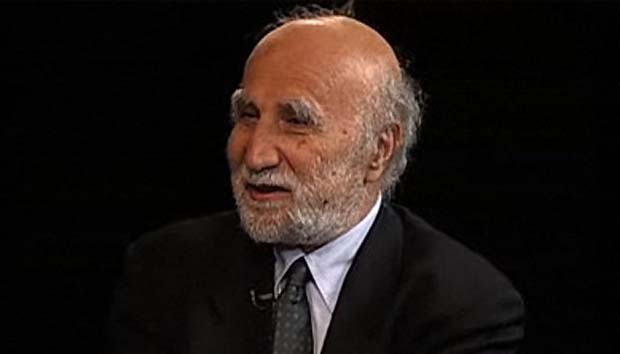I first became aware of Professor Fouad Ajami as a graduate student when I read his book The Arab Predicament, which left a deep impression. It is masterful in describing the intellectual, political and cultural torments of the Arab world in the wake of the defeat in the Six-Day War of 1967, and remains unrivaled in this respect. Later, when trying to understand the Shi’ites of Lebanon, I read his Vanished Imam, a book as much about the late Imam Musa Al-Sadr as it is about Professor Ajami’s own family history. It is, like so much he penned, intimate, deeply informed and beautifully written. I always assign this and his other writings to my students. What is particularly noteworthy about Professor Ajami’s scholarship is how he blended political history with a deep appreciation for culture, literature and history. He was a native informant who both wrote and set the master narrative, not a lackey or sycophant of the American power elite, as some have described him.
I met Professor Ajami about five years ago and we immediately got on well—he attributed this to our baladi, or “old country,” ways. Our intimacy was borne of our both being provincial Lebanese, uncomfortable with the faux sophisticates of Beirut. Professor Ajami was, of course, a Shi’ite from Arnoun in the south and I am a Maronite Christian from Niha in the north. We also both cherish the United States for giving us a new home, freedom from the shackles of the old world, and incredible opportunities.
On first impression, Professor Ajami came across as a cynical and pessimistic analyst of the Arab world—he spoke of pathologies. But this is a false impression. He was a passionate man who cared profoundly about the Arabs—all Arabs—and wanted to see them emerge from the political quicksand they had sunk into. Unlike so many of his contemporaries, he refused to accept that either socialism or, later, Islamism would prove the way out. For him both ideologies were different sides of the same authoritarian coin, and presented false promises and political dead ends.
The only hope for him lay in liberal democracy. This can help explain his mistaken enthusiasm and support for the American invasion of Iraq. He should have known better—and more specifically, that Iraqi society had been so devastated by Saddam’s rule, the sanctions regime and, finally, the invasion and its aftermath that it would prove impossible to build anything coherent. Professor Ajami also had a misplaced faith in the ability of the United States to manage things well.
More recently, he wrote a moving book on the war in Syria, in which he advocated for Western military intervention to help defeat the Assad regime. This again should be read as testifying to his enduring feelings for the Arabs, regardless of their sectarian affiliation or his own, as well as his abiding faith that the US could tip the balance in favor of the long suffering.
What many in the academy in the United States cannot forgive Professor Ajami for was his seeming indifference to the Israeli–Palestinian struggle. It is no secret that Professor Ajami was admired by many an Israeli and pro-Israel advocate, and he had no problem with the existence of Israel. For him, Israel is a political reality that cannot be undone, so the Arabs have to accept it, even befriend it, to get on with their own development. In fact, he saw the Arab obsession with Israel as yet another political blind alley that would keep the Arabs from advancing, while permitting many an authoritarian regime to remain in power in the name of the struggle against the Zionist entity.
I also suspect—but have no proof—that his views on Israel and the Palestinians were colored by the hard experience endured by the Shi’ites in south Lebanon in the 1970s, when they were ruled by the then-venal and brutal Palestinian Liberation Organization. One can see in Professor Ajami’s position a betrayal of Palestine, but it is more likely to have been rooted in a clear-eyed understanding that the Arabs had to come to terms with reality, on this as on so many other matters. It is interesting to note that Professor Ajami’s books remain greatly admired and read in the Arab world.
For all his complexities and possible contradictions, Professor Ajami’s scholarship now speaks for itself and represents a monument to a learned and sensitive man. Students of the Arab world have much to glean from his oeuvre.
